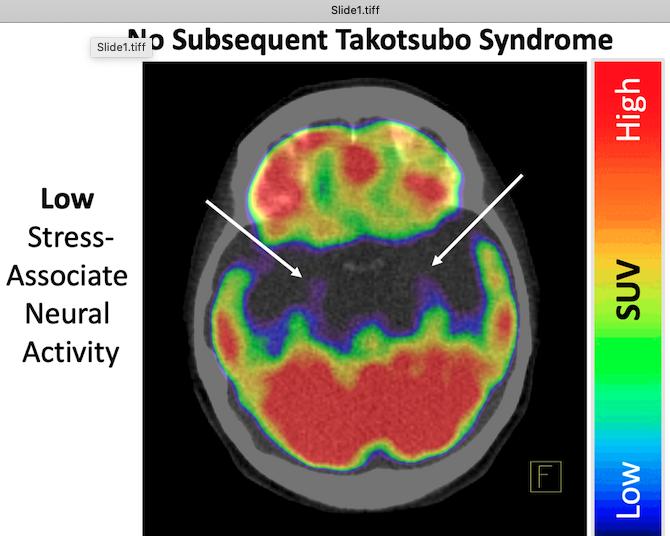March 29, 2021 — Heightened activity in the brain, caused by stressful events, is linked to the risk of developing a rare and sometimes fatal heart condition, according to research published in the European Heart Journal [1].
The study found the greater the activity in nerve cells in the amygdala region of the brain, the sooner the condition known as Takotsubo syndrome (TTS) can develop. The researchers suggest that interventions to lower this stress-related brain activity could help to reduce the risk of developing TTS; these could include drug treatments or techniques for lowering stress.
TTS, also known as “broken heart” syndrome, is characterised by a sudden temporary weakening of the heart muscles that causes the left ventricle of the heart to balloon out at the bottom while the neck remains narrow, creating a shape resembling a Japanese octopus trap, from which it gets its name. Since this relatively rare condition was first described in 1990, evidence has suggested that it is typically triggered by episodes of severe emotional distress, such as grief, anger or fear, or reactions to happy or joyful events. Patients develop chest pains and breathlessness, and it can lead to heart attacks and death. TTS is more common in women with only 10% of cases occurring in men. [2]
The amygdala is the part of the brain that controls emotions, motivation, learning and memory. It is also involved in the control of the autonomic nervous system and regulating heart…



























































